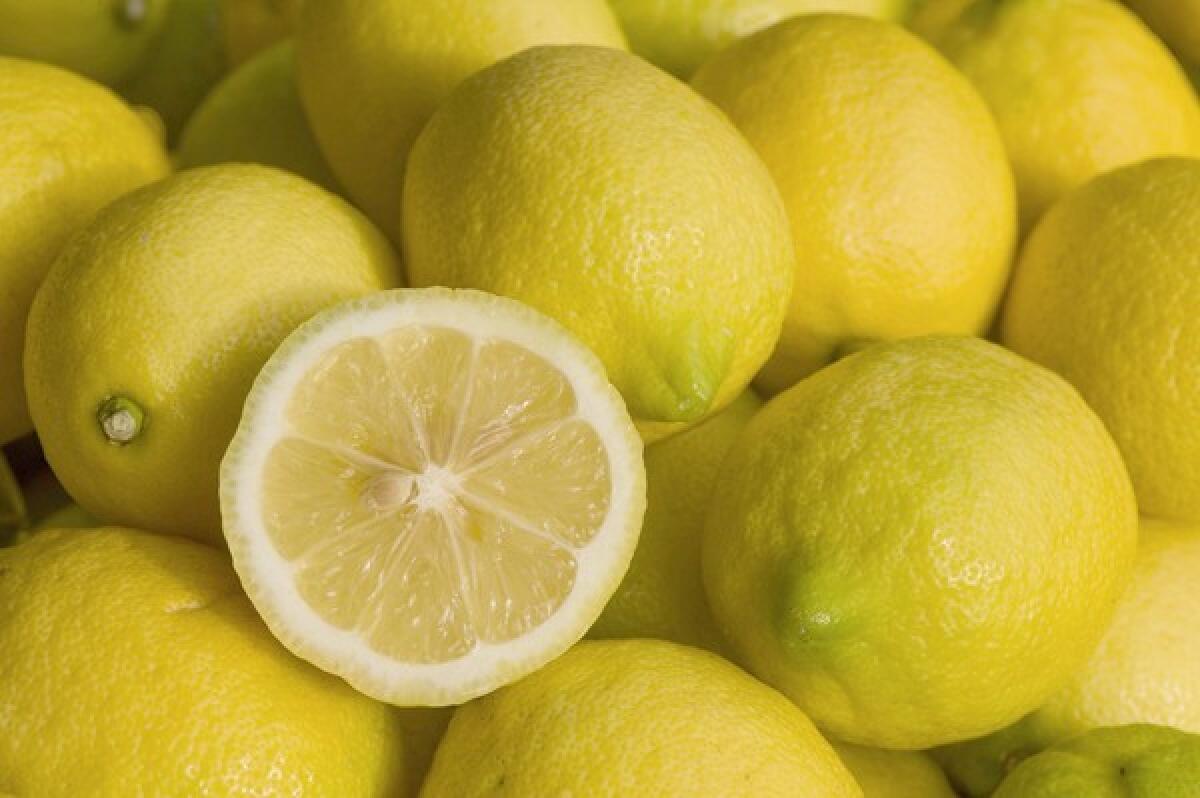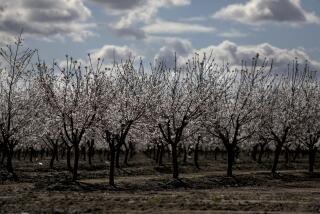It rained so much in California, this year’s lemons are gigantic

- Share via
When it rains, it pours oversized lemons.
Southern California got so much rain last fall and winter that the lemons grown in the region have became gigantic — but that’s bad news for Limoneira Co., one of the top producers. Bigger lemons are less profitable because they more often get turned into juice rather than heading to grocery stores to be sold as fresh fruit.
The hefty fruits net only about $18 a carton, while normal-sized lemons can garner $30. That has forced Santa Paula-based Limoneira to cut its outlook for fiscal year 2019, which ends Oct. 31. About half of Limoneira’s lemons were turned into juice, the company said Wednesday.
Since the next quarter “is a seasonally less significant earnings period, the company will not be able to recoup the losses incurred,” analysts at Stephens Inc. said in a report Thursday.
California’s summer 2018 heat wave resulted in a smaller avocado harvest this fiscal year, which also hurt the company’s revenue, Limoneira said.
Limoneira expects an operating loss of $500,000 to $3 million, compared with previous expectations of operating income of $7.5 million to $12.5 million.
But next year looks brighter. “As we turn our sights to fiscal 2020,” the company said in a statement, “we are well positioned for a return to solid growth and improved profitability.”
Labneh is a thick unsweetened Middle Eastern yogurt, and it gives these bars a flavor and texture between cheesecake and lemon bars.
More to Read
Inside the business of entertainment
The Wide Shot brings you news, analysis and insights on everything from streaming wars to production — and what it all means for the future.
You may occasionally receive promotional content from the Los Angeles Times.











